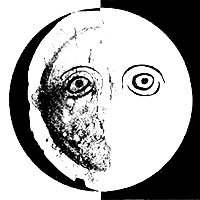MEMO was developed by Elisabeth Gruber and Gabriele Schichta who implemented the project MEMO for IMAREAL and the MAQ association. Representing IMAREAL, the University of Salzburg, and the Medium Aevum Quotidianum association, presently Elisabeth Gruber and Matthias Däumer are the responsible editors of MEMO and serve as the primary contact persons for all questions concerning the journal. They work to ensure all levels of MEMO’s functionality – for example, by
- coordinating technical measures for the smooth online operation of MEMO or by implementing measures themselves,
- drawing up development, scheduling, and budget plans and ensuring that they are adhered to,
- ensuring ongoing communication with the editorial board (or between the internal and external editorial boards),
- serving as the point of contact for the authors and reviewers and as liaisons for communication among these groups,
- and assuming responsibility for the entire editorial process – from procuring to editing the manuscripts as well as the online publication of the finished articles and issues.
Elisabeth Gruber and Matthias Däumer are responsible for MEMO in addition to their many other duties at IMAREAL. From the very beginning, MEMO has been and will remain a lively and exciting project. Your feedback, be it critical or favourable, is always welcome!
Kluge Jungfrauen
Freskomalerei, 1380-1400
Cäcilienkirche in Kyjatice/Slowakei
REALonline Bild Nr. 7013353
Elisabeth Gruber is a historian and has been working at the Institut für Realienkunde des Mittelalters und der Frühen Neuzeit (Institute for Medieval and Early Modern Material Culture) in Krems since 2015. She is also a member of the Institute of Austrian Historical Research and the Austrian Working Group for Urban History Research.
Research interests: Late medieval urban elites in the Duchy of Austria and the Kingdom of Bohemia, urban economic and administrative structures, relations between different actors or groups of actors in the urban context and beyond, significance and functions of material culture for the establishment of such relations.
Research project: Personal and institutional relations within and between small Central European cities in the late Middle Ages.
Gabriele Schichta is a specialist in German studies and has been working at the Institut für Realienkunde des Mittelalters und der Frühen Neuzeit (Institute for Medieval and Early Modern Material Culture) in Krems since 2010.
Research interests: Material culture in German narrative texts of the Middle Ages, general and medieval narrative theory, “Dingkulturen”, literature and the comic.
Research project: Narrative functions of objects in Thüring von Ringoltingen’s prose romance Melusine.
Matthias Däumer works in literarture- and theatre studies. Since 11/2022 he is a member of the IMAREAL team.
Research interests: Afterlife Journeys, Courtly Romance, Medievalism / culture theory (especially performance, medie and spacial theory)
Research project: Virtualizing Hell. Virtuality as a Mode of Reception in Middle High German Afterlife Journeys (Sensing Materiality and Vistuality)


